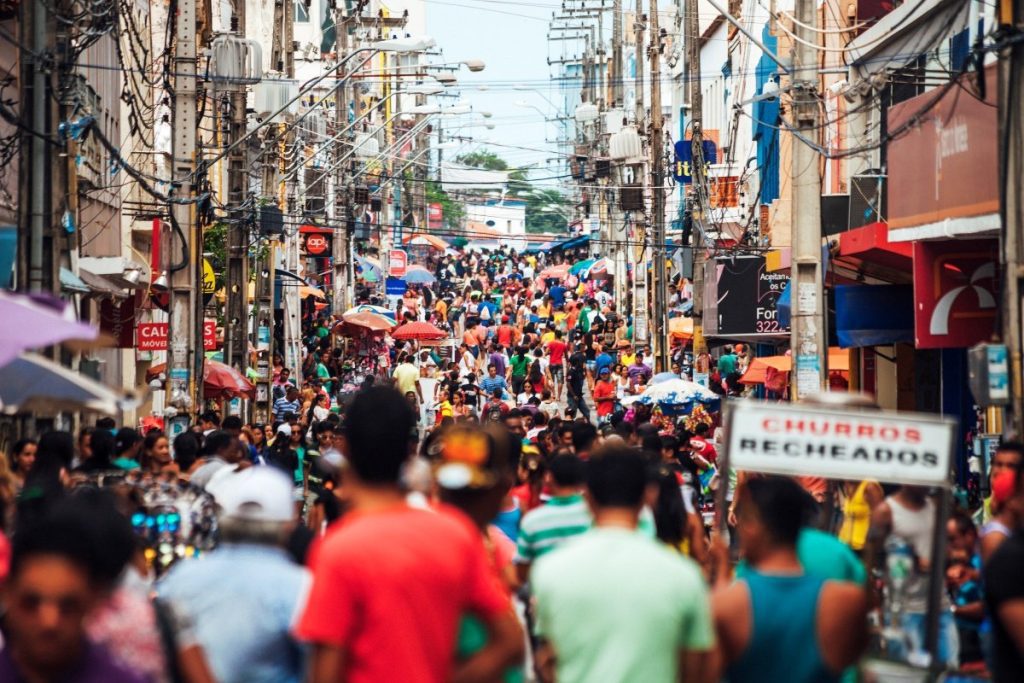We are on the cusp of a historic event. The world is about to welcome its eight billion people. Estimation is to reach the historical mark on Tuesday (15).
This amount is due not only to the decreased birth rate, but also to the longevity of the population, which has increased over the years.
On the occasion of World Population Day, on 11 July, the United Nations (UN) published a message celebrating advances in medicine, which have enabled longer lives, and reduced infant and maternal mortality.
But even in this panorama of victories, many challenges are presented in the face of the reality of a population of 8 billion.

panorama
It’s not just about celebrating, it’s about planning and understanding who these people are, and what strategies are needed to maintain quality of life and well-being.
With that in mind, the UN document World Population Prospects 2022brings essential data to study and understand the global scenario, being an essential component in designing new behaviors and developing global policies.
According to the data, birth rates and fertility are declining. This decrease is attributed, among other factors, to increased access to information on health, family planning and the right to choose about childbearing.
But even so, low-income countries continue to generate the largest number of children.

This occurrence in the birth rate is in direct contrast to changes in the age pyramid pattern. We are seeing a widening range that includes ages from 25 to 64.
Considered as a group of “active population”, able to work and popularize the economy, countries have a lot to gain economically with their available workforce.
But for this to be viable, generating income, improving working conditions, and changing life and context would only be possible if it was possible. Investing in human capital.
Another important factor is life expectancy. In world indicators, the age is estimated at 72.8 years, with a gradual increase in this indicator. In 2050, it is estimated that life expectancy will be 77.2 years.
Thus, challenges began to emerge.

What are the challenges faced by 8 billion people?
The challenges are numerous and permeate issues such as: hunger, employment, health, quality of life, sustainability and ensuring rights.
According to the data, the majority of the world’s population is concentrated in eight countries: Congo, the Philippines, India, Egypt, Ethiopia, Tanzania, Nigeria and Pakistan.
In addition to demographic data, this estimate points us to countries that need a more accurate look at their needs.
These indicators serve as guiding principles for policies that consider the integration of the human person, taking into account his context, culture, particularities and especially his footprint in the world.
The larger our population, the greater the environmental impacts. With goals to be achieved in 2030, such as reducing our carbon footprint and the effects of global warming, how can we sustainably maintain the quality of life?

Adopt clean energy? Sewage? How do we fight hunger through sustainable agriculture? There are many questions, still without definitive answers.
Some tracks have been considered and are under discussion, as an example of an initiative, we can mention the event in progress, COP27where Brazil can play a leading role in making proposals to fight hunger.
Having 8 billion people brings many opportunities, but also innumerable challenges.
For Liu Zhenmin, UN Under-Secretary-General for Economic and Social Affairs, “Rapid population growth makes it difficult to eradicate poverty, fight hunger and malnutrition, and increase the coverage of health and education systems.”
To embrace this new world, and as United Nations Secretary-General António Guterres said, “Celebrate our diversity, recognize our common humanity, and marvel at progress in health.” […]“We need answers.
Until they are provided, we continue to question the best ways to preserve the quality of life, ensure rights and access to health and education, which are so essential to our population.

“Music fanatic. Professional problem solver. Reader. Award-winning tv ninja.”






More Stories
Couple retakes glacier photo after 15 years, surprised by changes: ‘It made me cry’
Two killed in hotel collapse in Germany – DW – 07/08/2024
Lula speaks for half an hour on phone with Biden about Venezuela’s electoral impasse | Politics